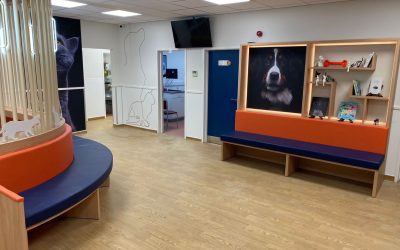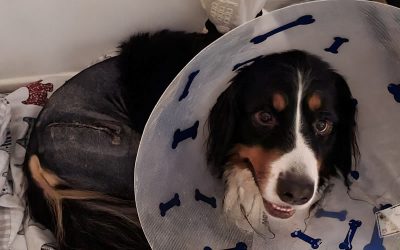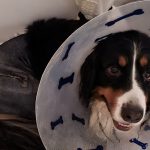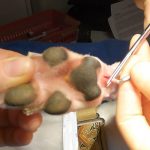Normally, the next step in trying to diagnose an illness in pets would be to do some tests to narrow in on the problem. In this case, Elliot performed blood and urine tests which confirmed that several key functions of the kidneys weren’t working.
Sick, inappetant cats are usually dehydrated and thus should have strong, concentrated urine; George’s urine was abnormally dilute. The kidneys should also filter metabolic wastes from the blood to prevent them building up in the system.
This function can be measured by a number of parameters; George had significant increases in creatinine, urea and phosphorus proving that he was in kidney failure but at this stage we didn’t know why.
Under sedation, Elliot performed an ultrasound scan of the kidneys which confirmed not only their abnormal size and shape, but also a change in structure including a fluid build-up around the outside edge.
Using the scanner to guide him, Elliot was able to take needle samples from precise locations within the kidneys, at very little risk to George.
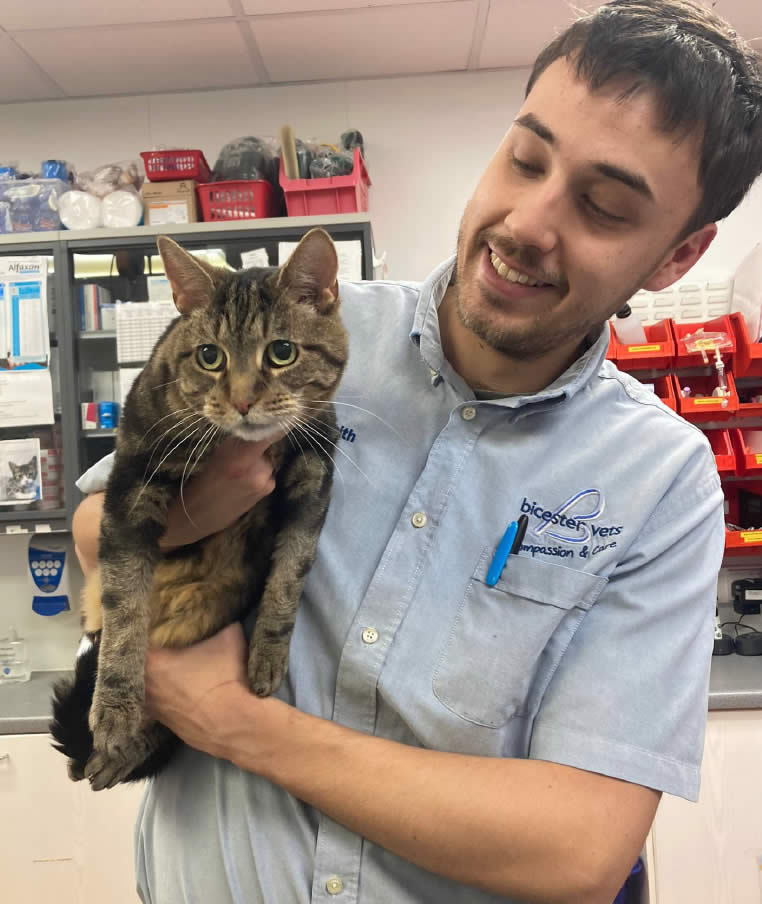
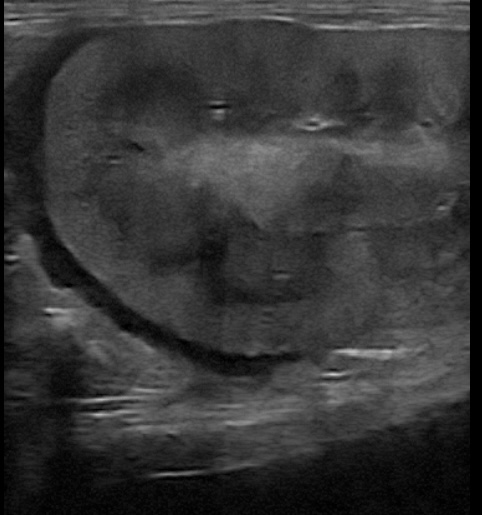
After much deliberation and following specialist advice from a veterinary oncologist, George embarked on a long course of chemotherapy. This involved four different drugs given repeatedly over a nineteen week period.
I’m happy to say that George tolerated the process very well. He remained amenable and good-natured despite numerous blood tests and intravenous injections. Unfortunately, he did develop diarrhoea after one of the stronger drugs, but this resolved with routine treatment.
For the final dose Elliot used a reduced dosage which George tolerated very well.
It is now about 9 months since George’s first diagnosis and his journey continues. Elliot saw him for a check-up in early October and was pleased to see that he is eating well, is bright and happy, and has regained some of the weight he lost during his illness. His owner is thrilled with the response to treatment.
It is unlikely that George is “cured”, more that his cancer is in remission. At some time in the future, he may fall ill again but his owners are very pleased to have their old friend back on good form for as long as it lasts.
Chemotherapy is a big undertaking for both the client and their pet. It is expensive and time consuming and relies on a pet who can cope with the repeated visits for treatments. Some cats would find this all very stressful, but George took it all in his stride and came through with flying colours. He has become a firm favourite with the staff because of his courage and good nature throughout his illness and treatment.
Well done to George and his lovely dedicated owners, and also to Elliot, Elaine and all the team at Bicester Vets who got him through his ordeal.
Enjoy your pets
Jason Williams
Bicester Vets

Building Plans for 2024
We have also commenced a major construction project externally which will add significantly to the facilities we can offer to our patients
Welcome to our NEW Reception & Waiting Room
Our aim was to make a beautiful space which we can all be proud of, but essentially, we needed to retain practicality and ergonomic design
Hip Hip Hooray for Ava
Ava is now seven months on from her surgery. She is very lively and is behaving like a puppy again!


